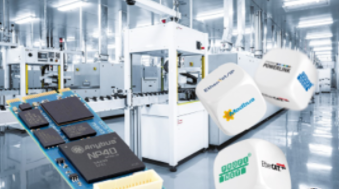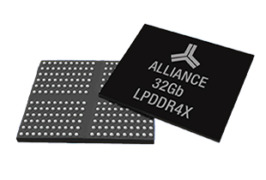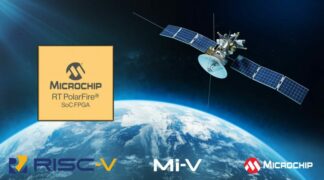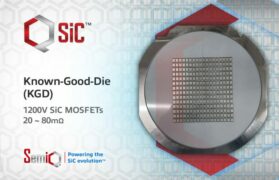To solve complicated tasks autonomously is the domain of IPC in many automation areas. They usually run with standard operating systems (Linux or Windows), but are increasingly connected to higher-level controllers via corresponding, standardized communication systems. There is therefore an increasing demand for devices to support different TDC protocols, i.e. manufacturing protocols such as PROFIBUS or PROFINET. The PC cards from the Ixxat INpact family offer a flexible and cost-effective option here, as the card supports several protocols. The multi-network capability of the INpact is based on the Anybus NP40 multi-network processor from HMS Networks. The network processor handles all communication between IPC and industrial network and enables simple connection of PC-based or embedded slave applications to EtherNet/IP, EtherCAT, Powerlink, Modbus-TCP, PROFINET IRT, PROFINET IRT Fiber Optic and PROFIBUS.
The Ixxat INpact also enables simple and flexible integration for different hardware solutions. The connection of devices or subsystems as slaves to higher-level networks is therefore just as easy as the visualisation of process data in control stations or the acquisition of even large amounts of data in inspection and test systems. The solution is so flexible that protocols can be easily exchanged. The programming interface remains the same. Regular firmware updates, which also include product improvements, ensure interoperability with the latest network standards.
INpact, the flexible interpreter family
The cards are available in three versions for the standardized interfaces PCIe, PCIe Mini and M.2 provided in most hardware solutions. The dedicated card version is equipped with a pre-installed network protocol. Alternatively, with the CE (Common Ethernet) version, the user can flash the desired protocol himself. This enables easy switching between all available Industrial Ethernet protocols. EtherCAT, EtherNet/IP, MODBUS TCP, PROFINET and POWERLINK as well as PROFIBUS are currently supported. In each case, the functionality is implemented as “slave” for the respective protocols. An extension with CC-Link and DeviceNet is in preparation. All boards work under the standard operating systems Windows and Linux as well as the real-time operating system INtime.
The transparent and uniform C programming interface allows software development of the devices independent of the network protocol. If the device is to be used in an environment with a different bus protocol, the development effort is minimal. The range of applications for the new protocol translators is wide and extends from manufacturers of operator panels, complex measuring equipment, high-quality analysis and handling systems to test systems. A few examples are given below.
Networking automation devices
Today, complex calculations, e.g. for complicated motion applications, are often carried out on site by powerful IPCs at the command of a PLC. Also measuring procedures with complex evaluations of the incoming data are standard today with the powerful IPC. This then reports the results determined or a measured value back to the PLC. Standard IPCs often lack the necessary powerful interface to industrial networks. With the INpact cards, suitable interfaces for the respective application can now be integrated depending on the hardware and field bus requirements. The high performance of the INpact cards allows a high data transmission rate. Depending on the application, cyclic I/O data with very short cycle times can also be handled, for example to sensors with high sampling rates. Acyclic data such as algorithms or audit information can also be transferred quickly in this way.
Operator panels
Panel PCs are now the work equipment of choice for plant personnel in many areas of automation technology. In most cases, an IPC is used here to operate and display plant data. In many cases it may be necessary for the Panel PC to access process data from sensors and actuators directly, which requires considerable development effort. In this case too, the INpact cards make the manufacturer independent of special network hardware and the associated protocols. The required compatibility with the local network is simply implemented by means of a plug-in card, which enables the device manufacturer to offer a wide product portfolio with short development times and low development costs.
https://www.rutronik.com/article/ipc-speaks-the-language-of-the-field










